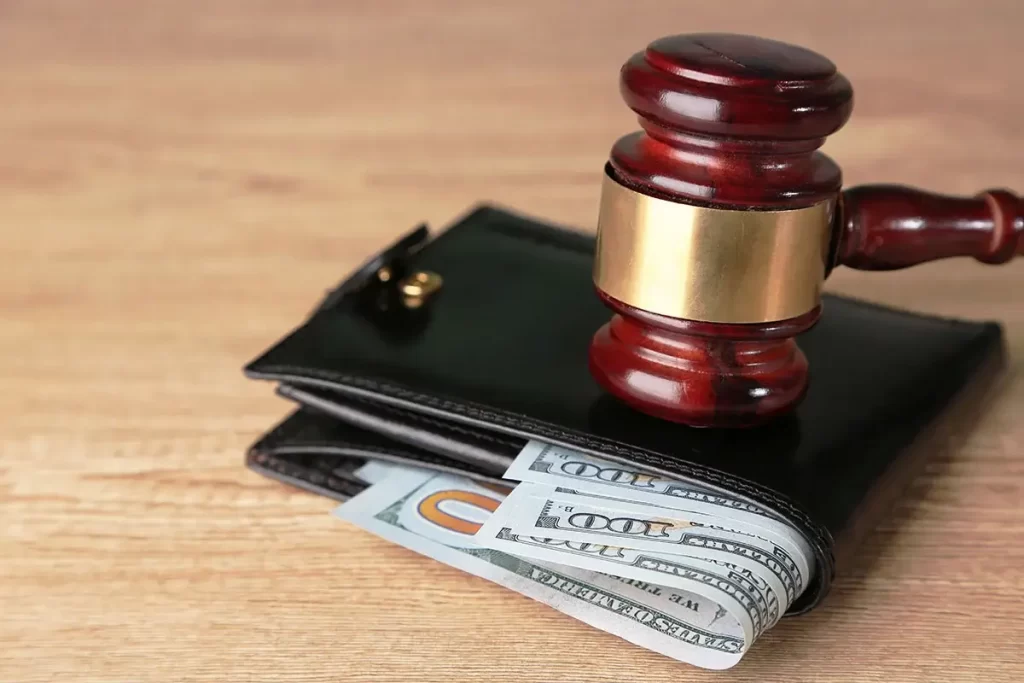
When a court orders wage garnishment, it means that your employer will withhold a certain portion of your pay and send it to your creditor until you have paid your debt. What is wage garnishment? Wage garnishment is often used to pay for child support, student loans, and consumer debts. You will have your wages garnished up until the debt has been paid or resolved. You have rights under the law, such as a limit on how much you can take at one time. Also, you can take steps to help you recover and lessen the impact.
What Is Wage Garnishment?
When people fall behind with mandatory payments, and their creditors adopt an aggressive collection strategy, wage garnishment may occur. If a parent fails to make child support payments as ordered by a court and falls behind for a few months, then the other parent may claim contempt.
A judge may order that if the first parent falls behind in payments, a certain percentage of their paychecks be withheld by the employer and sent to the parent who owes the child support. In most situations, but not all, wage garnishment requires court orders. The government can automatically garnish wages based on the amount you owe.
It depends on a number of factors, including the amount of income earned by a person, their debts, and how far behind they are. Taxes are often factored into the calculation.
What Are the Types of Wage Garnishment?
It’s more common than you think. A report from ADP Research Institute revealed that 7% (or 12 million) of the employees assessed by ADP Research Institute had their wages garnished in 2016. The number was 10.2% for workers aged 35-44. The top reasons included child support, consumer debts, student loans, and taxes.
Two types of garnishment are available:
- In wage garnishment, it is legal for creditors to force your employer to give up a portion of your income to settle your debts.
- In nonwage garnishment, creditors can take money from your account, also known as a bank levy.
When a creditor wins a court case against you, they can garnish your wages. A creditor may force garnishment even without a court order if, for example, you owe back taxes, child support, or a balance due on a federal student loan.
Depending on the state and creditor, you will receive notices from the court and your employer or bank. The garnishment will then begin within five to thirty business days. The garnishment will continue until the debt is paid, including any court fees or interest.
How to Deal With Wage Garnishment
You have options available if you want to contest court orders that mandate wage garnishment. It’s crucial to act swiftly, as you may have only a few hours to gather the necessary documents to contest the court order. Additionally, you can file a claim of exemption, as certain types of income may be exempt from garnishment.
Even if a court has already ordered wage garnishment, there are still avenues to explore. It may be beneficial to negotiate a payment plan with your creditors before they obtain a court order. It’s also possible to reach a settlement even if your wages have already been garnished.
Consolidating your debts by taking out a second loan is another option worth considering. However, it’s important to note that depending on your credit rating, you may be subjected to a high-interest rate or monthly payment for this new debt. Before pursuing this path, ensure that you can comfortably afford the payments. Otherwise, you may find yourself accumulating more debt if your existing obligations are not paid off and you’re unable to meet the requirements of the new debt.
What Can You Do to Stop Wage Garnishment?
In most states, it is your responsibility to know and use these rights.
- Legal notice of garnishment is required.
- If you think the information on the notice is inaccurate or that you do not owe a debt, you can dispute it.
- Certain forms of income are exempted from being garnished, including Social Security and veteran’s benefits. They could still be seized if they are in your account.
- If you have more than one wage garnishment you will lose your protection.
You can contest the garnishment if you think the judgment was erroneous or is causing you undue financial harm.
What to Do if You Receive a Garnishment Judgement
Ensure that the judgment is correct by carefully reading it. Verify that the debt is yours and not something that you have already paid. Consider how much money you will lose and the impact on your finances if it’s true.
Next, decide what you want to do. You may wish to consult with a local legal aid or a consumer lawyer if you’ve never done it before to find out what is best for you. You have three options:
Work Out a Different Deal
Contact your creditors. Many consumers underestimate the value of a good conversation. Look at your budget to determine how much money you owe and what you are able to pay. Then call your creditor for a plan of payment. Both consumers and creditors have this ability.
Appeal the Decision
You can file a court objection if you think the garnishment is in error, that it will cause unwarranted harm, or that it’s being executed improperly. Act quickly. You could have only five days to appeal the decision.
Accept the Garnishment
The garnishment can be paid in a lump sum or in monthly installments, as stated in the judgment. You can borrow money from family members or take out a personal loan in order to pay the judgment. This is possible, even if the garnishment appears on your credit report.
Although it can be embarrassing for your employer to know that you have been sued, it is best to tell your manager or the human resources department.
Wage garnishment can create stress in the workplace, so it’s important to be proactive and address the situation. Consider having a discussion with your employer to explain what is happening and ensure that everyone is on the same page. It’s crucial to address this issue promptly to prevent it from escalating into a larger problem.
Can I Stop a Wage Garnishment by Filing Bankruptcy?
A creditor who has successfully sued you and won a judgment can apply to garnish your wages. In California, credit card companies and medical providers file lawsuits for debt collection. When the IRS has a lien on you for unpaid income taxes, they can also take money out of your bank account or paycheck. California law allows certain creditors to seize funds from bank accounts and garnish wages. It can be devastating to find out that your paycheck or bank account has suddenly disappeared when you’re struggling to pay your living expenses.
By filing a Chapter 7 bankruptcy or Chapter 13 bankruptcy, our Los Angeles bankruptcy attorneys at Tenina Law can help you stop garnishments as well as stop bank account garnishments. You can also get rid of your other debts by filing for bankruptcy, while still protecting your income and assets from garnishments.
Call (213) 596-0265 to receive a no-obligation bankruptcy consultation from an experienced Los Angeles bankruptcy lawyer.






